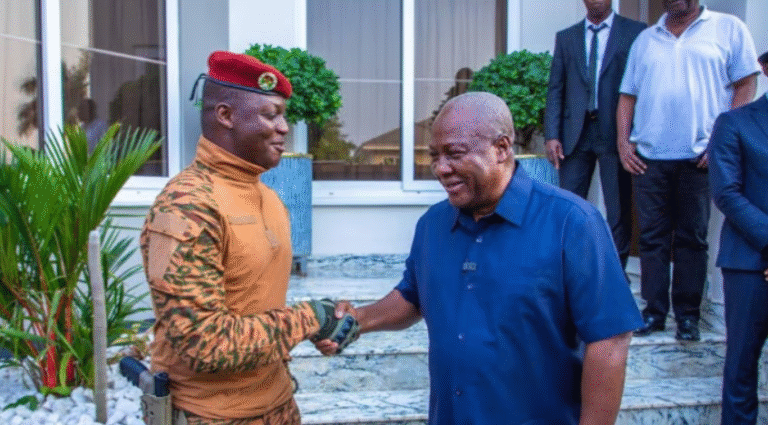By approving framework agreements and memoranda of understanding (MoUs) for their shared international land boundary, Ghana and Burkina Faso plan to deepen their bilateral collaboration.
Key stakeholders from both nations gathered for the three-day meeting, which was hosted by the Ghana Boundary Commission (GhBC), to examine and finalize the legal documents required for cooperative boundary management.
Brigadier General Anthony Ntem, the Commissioner-General of the Ghana Boundary Commission, spoke to the assembly and emphasized the value of mutual trust and collaboration in fortifying the two countries’ boundary.
He pointed out that successful cross-border cooperation would be improved by verifying the legal documents for collaborative border control.
Brigadier General Ntem described the border as more than a dividing line, calling it a set of “bridges” that connect communities, stimulate trade, and promote security.”
Yusif Sulemana, the deputy minister of lands and natural resources, emphasized the longstanding, brotherly, and respectful friendship between Ghana and Burkina Faso.
He underlined that rather than being viewed as a barrier, the more than 583-kilometer border is a place of contact where people have coexisted peacefully for many generations.
“This meeting represents an affirmation of our shared commitment to transform that common space into a true frontier of cooperation, stability, and prosperity,” Mr. Sulemana stated.
He also commended the technical and financial support provided by GIZ, reaffirming Ghana’s commitment to working closely with Burkina Faso in the spirit of partnership and solidarity.
Representing Burkina Faso, Yvette Nacoula Sanou Massadalo, Governor of the Nazinon Region, stressed that the two countries share multiple and complex challenges across their borders and trans-frontal spaces. She noted that addressing these challenges requires robust legal frameworks to operationalise cooperation among official actors in the boundary areas.
“Our main mission is to provide, at the end of this historic meeting, a relevant, adapted, and pragmatic legal framework that will translate our concerted decisions into concrete and tangible action on the ground,” she explained.
Mamoudou Tapily, the GIZ-AUBP West Africa Regional Coordinator, reaffirmed the value of cross-border collaboration as a means of preventing structural conflicts, promoting social cohesion, promoting good governance, and promoting economic growth.
He underlined that in order to address common issues like insecurity, climate change, and economic underdevelopment, cross-border collaboration is now a crucial tactic.
“Cross-border cooperation is no longer a mere necessity. It is an essential strategy to face common challenges. This meeting aims to provide us with the tools to achieve this,” Mr. Tapily noted.
The completion of these legislative frameworks is a major step in creating a region of stability, prosperity, and collaboration along the Ghana-Burkina Faso border.
The accords are anticipated to strengthen the border as a bridge of unity rather than separation as both nations advance, fostering security, boosting cross-border trade, and strengthening socioeconomic linkages.
Source:Lovinghananews.com


